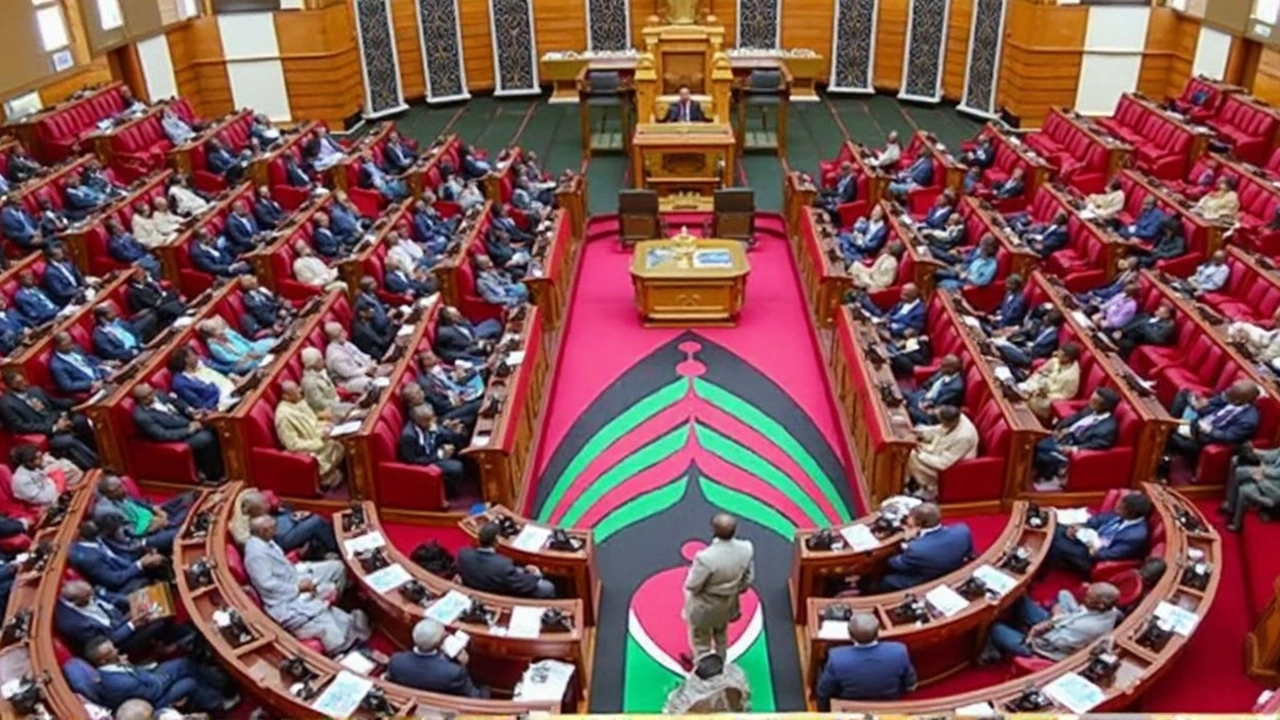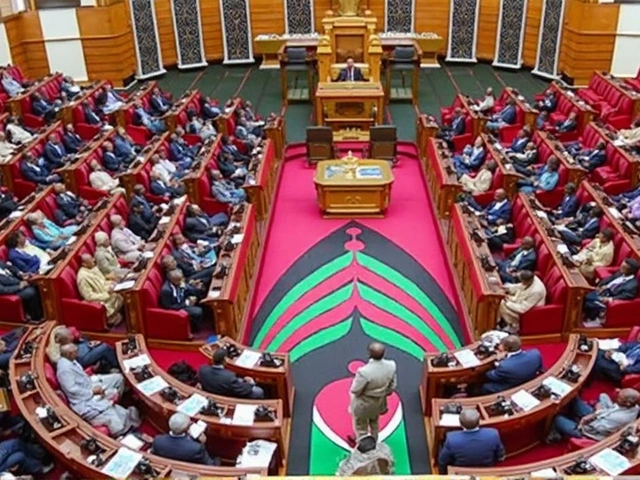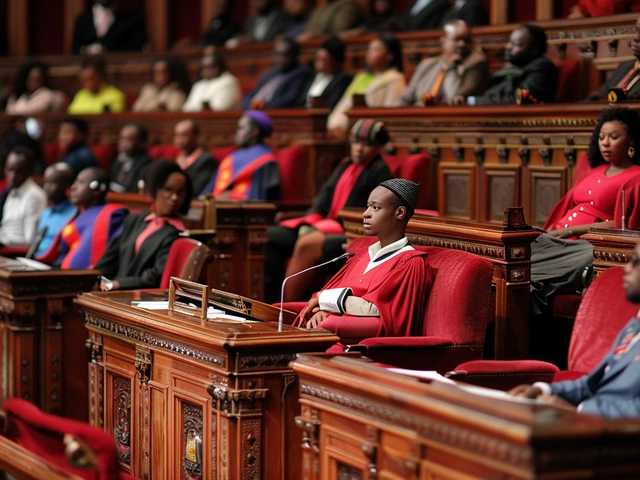
Finance Bill 2025: Fresh Rules and Big Money Moves
Kenya’s financial playbook just got a major rewrite. President William Ruto inked his signature on the Finance Bill 2025 on June 26, shaking up how the government plans to collect money and spend it over the next year. Alongside this bill, he approved the Appropriation Bill and its Supplementary counterpart, laying out the government’s spending map for the 2025/2026 financial year. It’s rare to see such sweeping changes in one go, but mounting pressure—from public outcry to economic recovery needs—set the stage for some tough decisions.
This year’s finance law comes hot on the heels of last year’s uproar over aggressive tax hikes. The government, perhaps stung by the backlash, dialed things down: no sharp tax spikes this time. Instead, they went for a smarter approach, tweaking definitions and closing loopholes while still promising to rake in Sh24 billion in extra revenue—less ambitious than Treasury’s initial Sh30 billion target. That’s a more realistic goal, given the current economic climate, but it still asks a lot from the taxman.

What Changed: Taxes, Pensions, Digital Businesses
If you run a digital business, there’s a whole new set of rules to watch. The law now stretches the Significant Economic Presence Tax (SEPT) to cover not just big international platforms, but all those running websites or electronic networks that reach Kenyan users. Parliament shot down an idea from Treasury to only tax companies earning Sh5 million or more under SEPT, worried that it would leak potential revenue with so many actors operating just below the threshold.
Pensioners catch a break this year: all pension payments will now be fully tax-exempt. That’s a big shift, which should put a little more money into retirees’ pockets after years of calls for relief. Other updates target the Income Tax Act, Value Added Tax (VAT), and Stamp Duty rules—refinements aimed at making the tax system simpler and less leaky, but definitely not less robust.
One controversial proposal that didn’t make the cut: giving the Kenya Revenue Authority (KRA) carte blanche to snoop through taxpayers’ financial data. Lawmakers put their foot down, rejecting the plan and easing public fears about government overreach into personal finances. This rejection was a rare example of Parliament siding with popular sentiment just when trust in institutions is being questioned.
The Appropriation Bill is where the real money moves land. The government now has the green light to withdraw Sh1.88 trillion from the Consolidated Fund for the year ahead. Out of that, Sh672 billion is earmarked for Appropriation-in-Aid, channeling money directly to different ministries and agencies. Budget planners insist that investment will go straight to job creation, innovation, and economic bounce-back—less talk, more doing, or so Kenyans hope.
This year’s legislative bundle marks a calculated gamble: spur economic growth, plug holes in the digital tax net, and support vulnerable groups, all while trying not to upset an already stretched taxpayer base. With public confidence wobbling and businesses watching closely, all eyes are now on implementation and whether these reforms turn theory into real progress on the ground.






The Finance Bill 2025 introduces several noteworthy adjustments that merit close observation. Extending the Significant Economic Presence Tax to all digital platforms signals a decisive move toward modernizing revenue streams. Additionally, the pension tax exemption will likely augment disposable income for retirees, a beneficial social outcome. While the projected Sh24 billion incremental revenue appears modest, it remains an ambitious target given the current macro‑economic conditions.
The removal of the proposed KRA data‑scraping authority reflects a prudent balance between fiscal oversight and individual privacy. By closing loopholes rather than raising rates, the government aims to improve compliance without overburdening taxpayers. This approach should, in theory, enhance the efficiency of tax collection.
The Finance Bill 2025 represents a paradigmatic shift in Kenya’s fiscal architecture, intertwining macro‑policy objectives with micro‑level regulatory refinements. From a structuralist perspective, the extension of the Significant Economic Presence Tax (SEPT) to encompass all digital entities engenders a more comprehensive tax base that aligns with the digitalization trajectory of the global economy. This legislative maneuver circumvents the erstwhile threshold of Sh5 million, thereby precluding revenue leakage through artificial segmentation of digital enterprises. Critically, the amendment mitigates the fiscal externalities associated with the double‑taxation avoidance agreements that have historically undermined domestic revenue mobilization. Concurrently, the outright exemption of pension disbursements from income tax introduces a redistributional mechanism that amplifies net disposable income for the elderly demographic. Empirical evidence from analogous reforms in peer economies suggests a positive correlation between pension tax relief and aggregate consumer spending, which could catalyze demand‑driven growth. The modest projection of Sh24 billion in additional revenue, while ostensibly conservative relative to the Treasury’s Sh30 billion aspiration, is predicated on a realistic elasticity of taxable income under the new compliance regime. Nonetheless, the efficacy of this revenue enhancement hinges upon the operational capacity of the Kenya Revenue Authority to enforce the revised tax provisions without engendering administrative bottlenecks. The appropriation component, allocating Sh1.88 trillion from the Consolidated Fund, delineates a fiscal envelope that earmarks Sh672 billion for Appropriation‑in‑Aid, a figure that underscores the government’s intent to channel resources directly to sectoral ministries. The stipulated allocation to job creation and innovation portfolios is emblematic of a growth‑oriented fiscal stance that seeks to translate fiscal inputs into tangible socioeconomic outputs. Moreover, the exclusion of the contentious KRA data‑scraping clause demonstrates legislative responsiveness to civil society concerns regarding privacy infringement. Such a concession may bolster public trust, thereby enhancing voluntary compliance-a cornerstone of sustainable tax policy. However, the omission also raises questions about the adequacy of current data analytics frameworks within the tax administration to detect sophisticated evasion schemes. In the absence of robust digital forensics, the government may encounter challenges in closing the compliance gap that the expanded SEPT aims to address. The interplay between legislative ambition and administrative execution will ultimately determine whether the Finance Bill 2025 transcends its theoretical promises. Stakeholders, ranging from multinational digital platforms to local small‑scale enterprises, will be closely monitoring the implementation timeline to assess the real‑world impact of these reforms.
You nailed the big picture – the digital tax expansion is a game‑changer. Still, the KRA’s tech capacity will be the real test. If they can’t track the platforms, the law is just ink on paper.
The pension exemption feels like a breath of fresh air for our seniors, a symbolic gesture that acknowledges decades of contribution. Meanwhile, the digital tax net is being tightened, which could level the playing field for local innovators who have long been sidelined. It’s a delicate balance, and the ultimate success will depend on transparent rollout and consistent enforcement.
Indeed, the harmonization of tax policy with inclusive growth objectives is commendable; a methodical implementation plan will be essential to avoid unintended distortions.
The legislative package is a meticulous orchestration of fiscal levers, each calibrated to extract marginal gains without destabilizing the macro‑equilibrium. Such precision is rarely observed in contemporary budgeting exercises.
Ah, another triumphant proclamation of fiscal stewardship, as if tax reforms were a panacea for every structural malaise. One must wonder whether the exuberant optimism will survive the inevitable implementation friction.
lol the gov't thinks they can just pull a rabbit outta the budget hat, but the real money moves are hidden behind secret accounts you can’t see.
The new budget allocations could spark a wave of new jobs if the ministries stick to their spending targets-let’s keep the momentum!
The bill feels like a promise wrapped in bureaucracy.
Wow, what a roller‑coaster of policy changes! 🎢 The pension tax break is a golden lifeline for retirees, and the digital tax expansion could level the playing field for innovators! 🌟 Let’s hope the rollout is smooth and inclusive-our economy deserves nothing less! 🙏💪
Extending SEPT to every digital service is a masterstroke of modern governance-because nothing says ‘fairness’ like taxing every meme generator. The hope is that small creators won’t be crushed under the weight of compliance paperwork. Meanwhile, the pension exemption looks like a token gesture aimed at scoring political points. Time will tell if these tweaks are substantive or just headline material.
This bill is a reckless gamble that will drown small businesses in a sea of red tape! The government’s half‑hearted revenue targets are nothing but a sham, and the digital tax will strangle startups before they even hatch! Wake up, policymakers-this is not the revolution you claim!
Looks like the treasury finally decided to play nice with the retirees while tightening the net on those tech giants. Interesting move, could shake up the market vibes.
True that, but let’s keep an eye on how the KRA actually enforces the new digital rules-talk is cheap until you see the audits roll in.
In the grand scheme, this fiscal overhaul could serve as a catalyst for sustainable growth, provided the implementation framework remains transparent and inclusive. Let’s rally behind the vision and push for accountability, because together we can turn policy into progress!